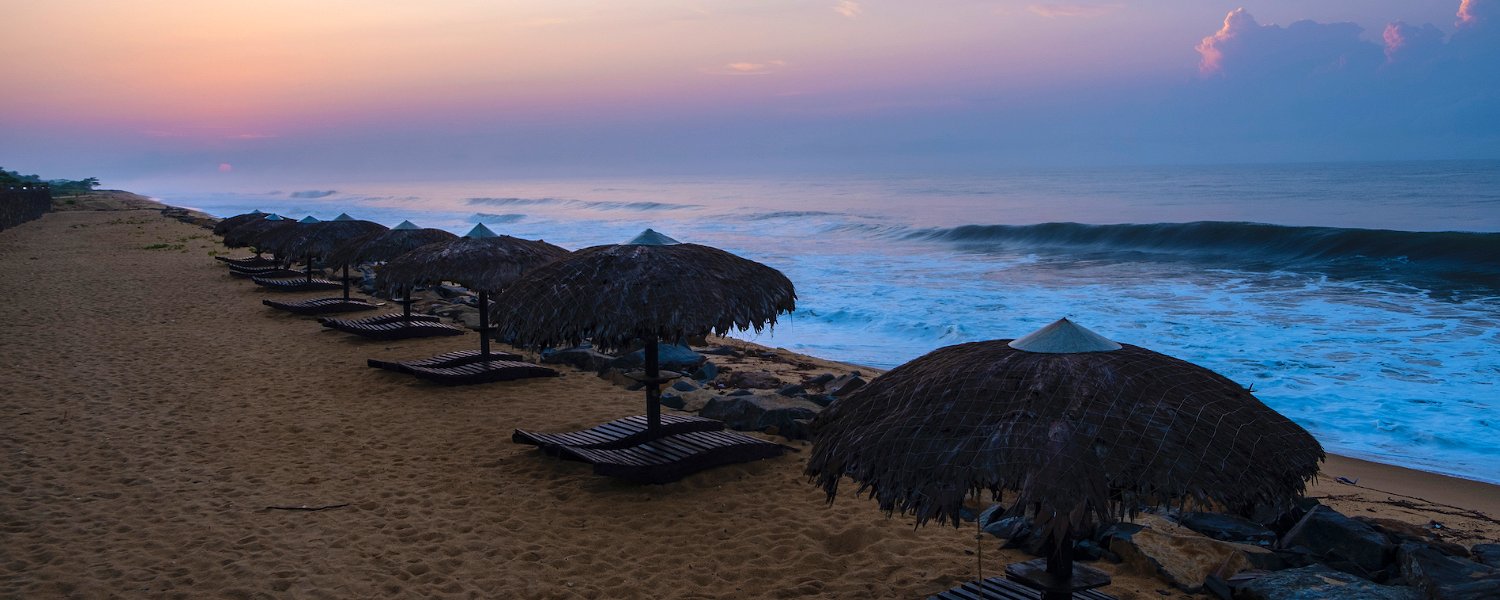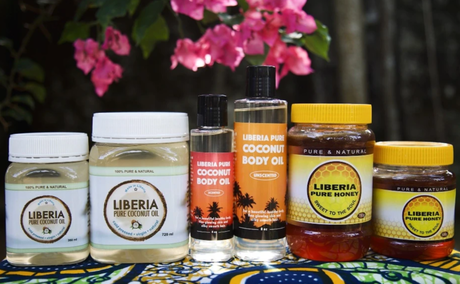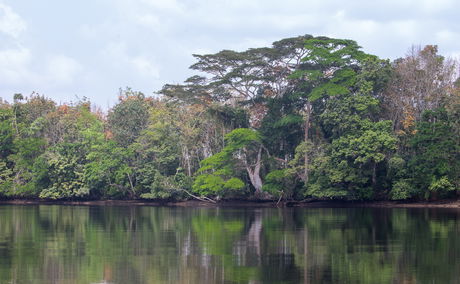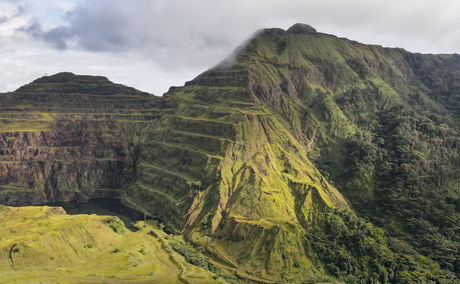Spice up your travels with "Bringing Liberia Home" - your guide to Liberia's local artisanal treasures. Discover the legendary "Pepper Coast's" modern-day natural products like Liberica coffee, honey, and Liberian chocolate as you explore this vibrant destination.
Seize the Latecomer’s Edge: Liberia’s Tourism Transformation for a Prosperous Future
In this article, Isaac John Padmore highlights Liberia's potential to leverage its "latecomer’s edge" in tourism development. Positioned in West Africa, Liberia has been historically overlooked on the global tourism stage. However, this delayed start now presents a unique opportunity for Liberia to build a modern, sustainable, and distinctly Liberian tourism sector from scratch. Unlike countries with established tourism industries struggling with over-tourism and environmental degradation, Liberia can learn from their mistakes and implement best practices from the beginning.
Padmore emphasizes that Liberia’s strategy should focus on sound policy, infrastructure development, community involvement, and innovative marketing. The government’s commitment is evident through investments in infrastructure, the creation of a dedicated tourism authority, and a focus on sustainable practices. The approach also includes digital transformation to appeal to tech-savvy global audiences.
Furthermore, Liberia's tourism strategy aligns with modern trends, such as sustainable tourism, cultural heritage tourism, adventure tourism, and wellness tourism. The article outlines the importance of optimizing resources, building a skilled workforce, and fostering inclusive growth to ensure tourism benefits are distributed equitably across communities.
Ultimately, Padmore envisions a prosperous future for Liberia's tourism, where strategic planning, investment, and collective efforts of all stakeholders will transform the country into a premier destination in West Africa, ensuring sustainable development and national pride.
Seize the Latecomer’s Edge: Liberia’s Tourism Transformation for a Prosperous Future
By: Isaac John Padmore
In the heart of West Africa lies a country rich in culture, history, and natural beauty, yet one that has often been overlooked on the global tourism stage—Liberia. However, this narrative is changing. As the world evolves, so too does the potential for Liberia to harness the untapped power of tourism. What might have once been considered a disadvantage—the late start in developing a robust tourism industry—now emerges as an extraordinary opportunity. Liberia is poised to seize the latecomer’s edge, integrate innovative practices, restructure its tourism landscape, and optimize resources for a brighter, more prosperous future.
Embracing the Latecomer’s Advantage
Liberia's relatively late entry into the global tourism market could easily be perceived as a setback, but in reality, it is a golden opportunity. Unlike other nations that have long-established tourism sectors but are now grappling with over-tourism, environmental degradation, and cultural dilution, Liberia stands on the cusp of developing a tourism industry from the ground up. This blank canvas allows for the creation of a modern, sustainable, and uniquely Liberian tourism experience.
Countries with well-established tourism sectors have faced numerous challenges over the years, from managing environmental impact to preserving cultural integrity. Liberia has the advantage of learning from these countries’ experiences, avoiding their mistakes, and implementing best practices from the outset. This proactive approach enables Liberia to prioritize sustainable tourism that not only attracts visitors but also safeguards its rich cultural and natural heritage.
The digital age has revolutionized the way the world travels, with tourists increasingly relying on technology for trip planning, bookings, and sharing their experiences. While some older tourism markets struggle to integrate these digital advancements, Liberia can incorporate cutting-edge technology from the start. By embracing online platforms, digital marketing, and data-driven decision-making, Liberia can reach global audiences, offering seamless and memorable experiences to tech-savvy travelers.
Crafting a Comprehensive Tourism Strategy
For Liberia to truly capitalize on its tourism potential, a cohesive and comprehensive strategy is essential. This strategy must encompass every aspect of tourism—from policy and infrastructure to community involvement and marketing.
The foundation of a successful tourism industry lies in sound policy and governance. The government of Liberia has recognized tourism as a critical component of national development, evident in its inclusion in the national agenda. The establishment of a dedicated tourism authority marks a significant step forward. This body is charged with overseeing the development and promotion of tourism, ensuring that policies are in place to attract investment, protect resources, and drive inclusive growth. Collaboration with other government ministries, the private sector, and local communities will ensure a unified approach to tourism development.
A key challenge in Liberia’s tourism development is the need for improved infrastructure. Recognizing this, the government is investing in the development of roads, airports, and public transportation systems, particularly in regions with high tourism potential. Quality accommodation is also a priority, with initiatives underway to build a range of lodging options from luxury hotels to eco-lodges. These investments are complemented by efforts to enhance digital infrastructure, including reliable internet services and a comprehensive online tourism portal that offers easy access to information on attractions, accommodations, and activities.
Tourism must be a force for good, benefiting the people who live in tourist destinations. Liberia’s approach to tourism development includes a strong focus on community involvement. By encouraging and supporting community-based tourism initiatives, the government ensures that local populations reap the rewards of tourism. These initiatives, which range from guided tours and homestays to cultural performances and handicraft production, provide income and employment opportunities for locals, while offering tourists authentic and enriching experiences.
A strong and compelling brand identity is crucial for attracting international visitors. Liberia is crafting a tourism brand that highlights its unique selling points—its rich cultural heritage, stunning natural landscapes, and warm hospitality. Targeted marketing campaigns are being rolled out across traditional and digital channels, with a particular focus on social media, travel blogs, and influencer partnerships. These efforts are designed to reach a global audience, especially younger travelers who are increasingly seeking off-the-beaten-path destinations. Participation in international tourism fairs and strategic partnerships with global tour operators further enhance Liberia’s visibility on the world stage.
Adapting to Modern Tourism Trends
Tourism is a dynamic industry, constantly evolving in response to changing consumer preferences and global trends. Liberia’s tourism strategy is designed to be adaptable, allowing the country to align itself with the latest trends and position itself as a leading destination in West Africa.
The global demand for sustainable tourism is on the rise, driven by travelers’ growing awareness of environmental issues. Liberia is ideally positioned to meet this demand. The country’s tourism development plan prioritizes eco-friendly practices, from the construction of eco-lodges to the implementation of comprehensive waste management systems in tourist areas. Conservation efforts are also at the forefront, with initiatives to protect Liberia’s rich biodiversity and natural landscapes. By embracing sustainable tourism, Liberia not only appeals to conscientious travelers but also ensures that its natural beauty remains intact for future generations.
Today’s travelers are increasingly interested in cultural and heritage tourism—experiences that allow them to connect with the history, traditions, and people of the destinations they visit. Liberia’s cultural wealth offers immense potential in this area. The country’s diverse heritage, which includes indigenous communities, historic sites, and traditional festivals, is being preserved and promoted as key tourist attractions. The development of cultural tourism routes, the restoration of historic landmarks, and the organization of vibrant cultural festivals all contribute to showcasing Liberia’s unique identity to the world.
For those seeking adventure, Liberia’s natural landscapes are a treasure trove of possibilities. The country’s rainforests, mountains, rivers, and beaches offer endless opportunities for activities like hiking, surfing, birdwatching, and wildlife safaris. Recognizing this potential, the government is developing and promoting adventure tourism products that highlight Liberia’s untouched natural beauty. This includes the establishment of national parks, the creation of adventure trails, and the support of local tour operators who provide guided adventure experiences. Adventure tourism not only appeals to thrill-seekers but also showcases Liberia as a destination for those who wish to explore unspoiled wilderness.
The wellness tourism market is booming, with more travelers seeking destinations that offer health and well-being experiences. Liberia’s serene environments—from tranquil beaches to lush forests—provide the perfect setting for wellness retreats. The government is exploring opportunities to develop health and wellness tourism, offering programs that focus on holistic healing through yoga, meditation, and traditional African therapies. These retreats cater to a growing global market of travelers who prioritize relaxation, rejuvenation, and personal well-being during their vacations.
Optimizing Tourism for Maximum Impact
To fully realize the benefits of tourism, Liberia must optimize its resources and processes. This involves strategic investments, capacity building, and a commitment to ensuring that tourism development is both inclusive and sustainable.
A skilled workforce is essential to delivering high-quality tourism experiences. Liberia is investing in capacity building through education and training programs. Tourism training institutes are being established, vocational training programs are being developed, and partnerships with international organizations are being formed to bring expertise to Liberia. By equipping individuals with the necessary skills, the country ensures that its tourism sector can meet the demands of international visitors, enhancing the overall visitor experience and encouraging repeat visits.
Investment is key to developing the infrastructure and services needed to support a thriving tourism industry. The government is working to create a favorable investment climate by offering incentives such as tax breaks, grants, and access to low-interest loans for tourism projects. Public-private partnerships are also being encouraged as a means of mobilizing resources and sharing the risks associated with large-scale tourism developments. By attracting both domestic and foreign investment, Liberia can accelerate the development of key tourism assets and infrastructure.
Liberia’s natural environment is one of its greatest assets, and its protection is crucial for the sustainability of the tourism sector. The government is prioritizing environmental conservation through the establishment of protected areas, the enforcement of environmental regulations, and the promotion of eco-friendly tourism practices. These efforts ensure that Liberia’s natural beauty remains unspoiled, providing a lasting attraction for tourists and preserving the country’s biodiversity for future generations.
Tourism has the potential to drive inclusive growth, creating jobs, reducing poverty, and improving the quality of life for local communities. Liberia’s tourism strategy emphasizes the importance of ensuring that the benefits of tourism are distributed equitably. This includes promoting the participation of women, youth, and marginalized groups in tourism activities, as well as focusing on the development of tourism in rural areas, where the economic impact can be particularly significant. By fostering inclusive growth, Liberia ensures that tourism contributes to the broader goals of national development, benefiting all citizens.
A Vision for Liberia’s Tourism Future
Liberia is at a pivotal moment in its tourism journey. The country’s rich cultural heritage, stunning natural landscapes, and warm hospitality are powerful assets that, when combined with strategic planning and investment, can transform Liberia into a premier destination in West Africa. The government’s commitment to tourism development, as demonstrated by its comprehensive strategy and targeted investments, sets the stage for a bright and prosperous future.
But the success of Liberia’s tourism industry will not be achieved by the government alone. It will require the collective effort of all stakeholders—government agencies, private sector partners, local communities, and international organizations. Together, these groups can work to build a tourism industry that is sustainable, inclusive, and reflective of Liberia’s unique identity.
As Liberia continues to develop its tourism sector, it will not only attract more visitors but also create jobs, generate revenue, and promote national pride. The country’s late entry into the global tourism market is not a disadvantage but rather an opportunity to build a modern and resilient tourism industry—one that learns from the past, embraces the present, and looks boldly towards the future.
In the words of a popular Liberian proverb, “The palm tree that grows slowly gives the best fruit.” Liberia’s tourism industry may be in its early stages, but with careful nurturing, it has the potential to yield rich rewards for the nation and its people. The time is now for Liberia to seize the latecomer’s edge, integrate innovative practices, restructure its tourism landscape, and optimize its resources to create a prosperous and sustainable future for all.
Further Reading
Nestled where mangrove forests meet the pristine Atlantic sands just 30 minutes from Monrovia, the Marshall Wetlands is a breathtaking coastal oasis teeming with natural wonders. This remarkable ecosystem, designated a Ramsar site of international importance, features golden beaches, three rivers, and lush mangrove forests—a vibrant tapestry of maritime, estuarine, and freshwater habitats highlighting Liberia's rich environmental heritage. The many villages along the river thrive on its resources, relying on the water...
From dense rainforest to powerful waterfalls, Liberia's vast stretches of Upper Guinea rainforest are one of the last great frontiers of untouched beauty in West Africa. Home to Sapo National Park, Mount Nimba, Robertsport's left-hand waves, and the Kpatawee Falls, you are bound to find adventure anywhere in the country. Liberia has something for everyone. Today, it is a safe, bustling country with a vibrant culture, yet Liberia has slipped through the...









Share This Post